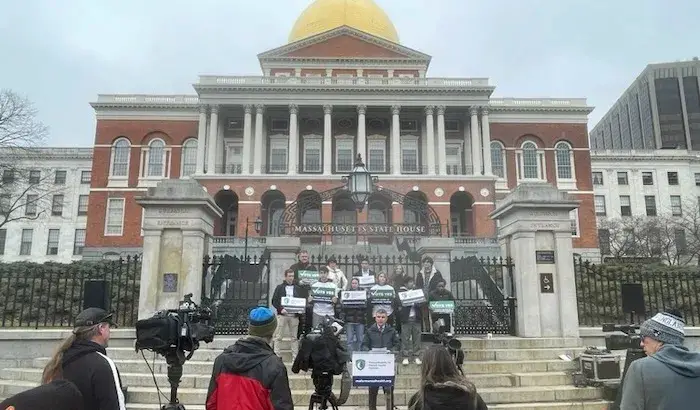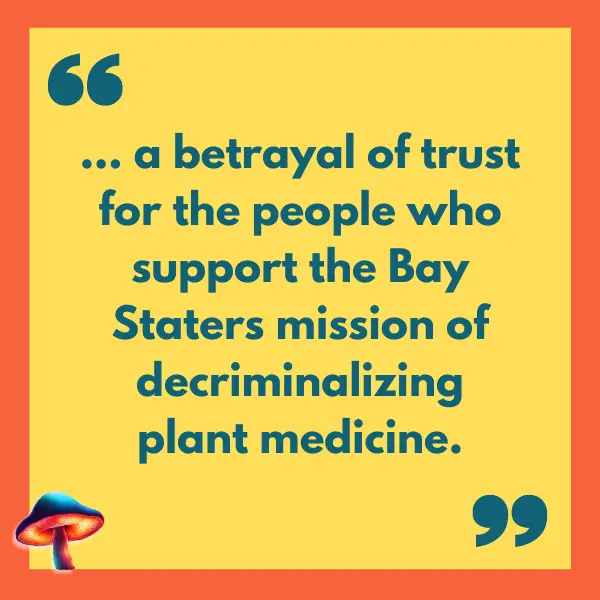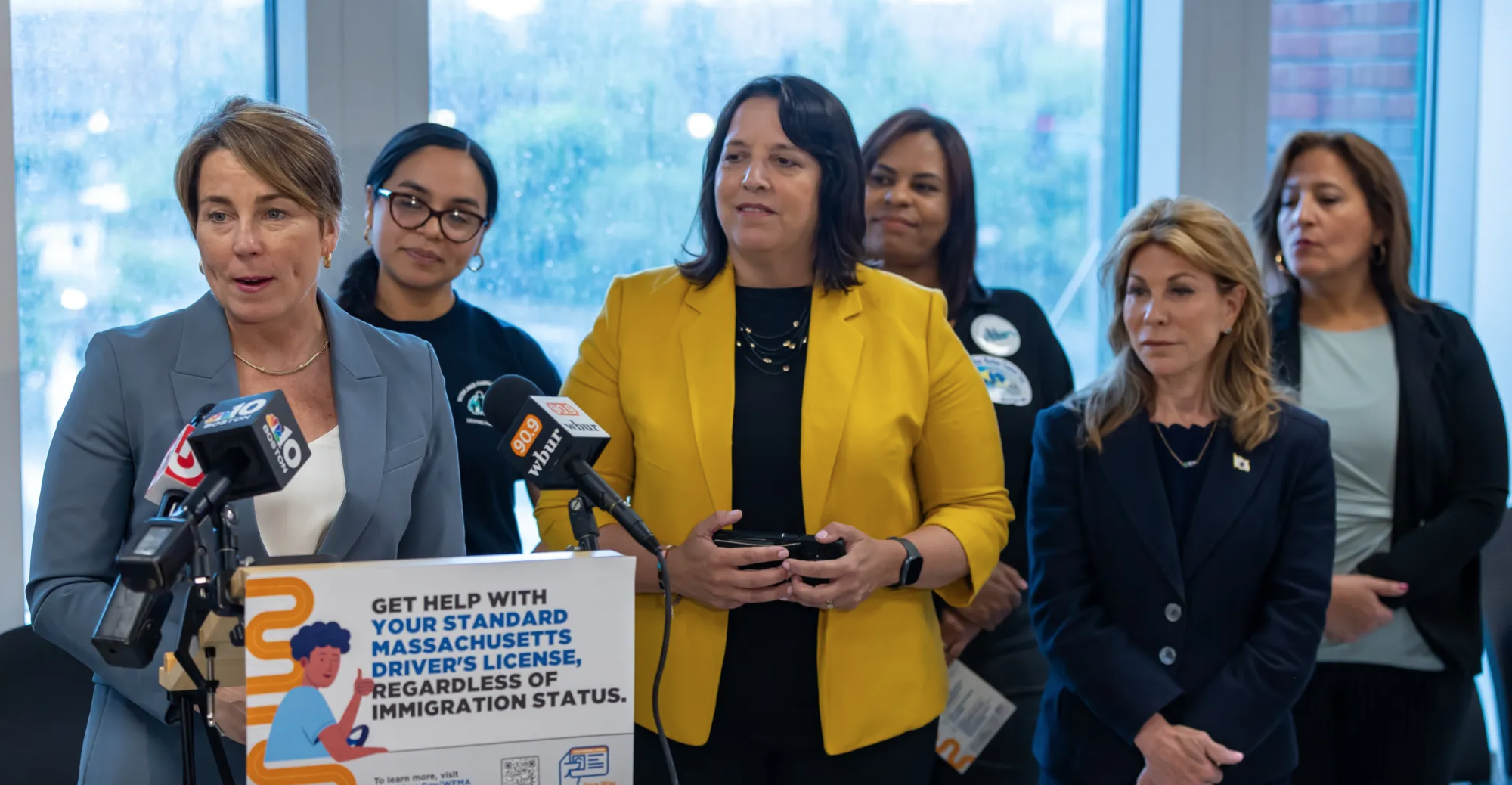Psychedelics opposition alliance forms in Mass, further divides grassroots
Last week, news broke that a group officially formed to oppose a ballot measure proposed to legalize psychedelics in Massachusetts.
But behind the scenes, a movement has been building for several months to harpoon the initiative, and one of its loudest voices comes from a group that was formerly at the forefront of the plant-based medicine movement in Mass.
Several happenings and revelations in the ongoing Bay State psychedelics legalization saga have brought previously simmering grassroots tensions to the surface over the past few months. As a result, prior partnerships have fractured, while in some cases, new bonds have been forged between unlikely allies.
For years, psychedelics advocacy stalwart Bay Staters for Natural Medicine has been at the center of the drug reform movement in New England. Among other actions, BSNM supporters have spearheaded groundbreaking decriminalization campaigns in Somerville, Cambridge, Amherst, Northampton, Easthampton, Provincetown, Salem, and most recently Medford.
But recently, BSNM founder James Davis has landed in the middle of community controversy, even coming under fire from fellow coalition members for a growing number of concerns. Chief among them is his confusing and sometimes contemptuous acknowledgment of groups and organizers backing the Mass psychedelics ballot measure.
Now, Davis is drawing ire from fellow grassroots activists for his opposition to a referendum he once said his group supported. As BSNM backers and detractors tangle, the rift is demonstrably impacting the multimillion-dollar initiative to legalize psychedelics in Mass.
Donations and damnation
Tensions first arose in February, after it was revealed that BSNM received a $35,000 donation from New Approach PAC, a Washington, DC-based operation that led the psychedelics legalization push in Oregon in 2020 and spearheaded Colorado’s successful 2022 legalization campaign before setting its sights on the commonwealth.

The sizable gift from New Approach was not made known to a number of Bay Staters-affiliated organizers, or by extension the larger statewide grassroots community. In the wake of the donation’s reveal, critics of BSNM expressed frustration at the apparent deliberate secrecy. Davis responded by rebuking critics and claiming “the payment was intended to influence our position and mute our affordability concerns.”
Along with other grassroots advocates, Davis has cited reports of exorbitant treatment costs in Oregon, raising concerns that a similarly PAC-backed system in Mass would open the door for comparably unaffordable treatments. For example, the BSNM X account wrote, “The Massachusetts psychedelic ballot question is a scam to corporatize a new mental health treatment.”
Davis has played an integral role in the successful decriminalization of psychedelics in municipalities across the commonwealth, and long maintained public support for the ballot initiative—even after privately skewering New Approach to fellow activists. However, public tenor changed in March; Davis had registered to testify in favor of the measure in front of the state’s Special Joint Committee on Initiative Petitions, but then spoke in opposition of it.
In the weeks following that hearing on Beacon Hill, Davis confirmed his opposition to the ballot measure on the official Bay Staters Facebook, LinkedIn, and Twitter pages (though not on the group’s Instagram, which has its biggest following). Further complicating matters, last month, a series of leaked emails that were exchanged between Davis and PAC officials revealed that the former was asked directly and repeatedly for input on the ballot measure. The correspondence contradicted prior claims by Davis that New Approach failed to consult ground-level leaders in the development of the legislative specifics of the PAC’s initial proposal. The campaign is run by the group Massachusetts for Mental Health Options and its Grassroots Campaign Director Emily Oneschuk, with Dewey Square Group consultant Jennifer Manley also serving in a key operational role.
The seemingly shifting intentions of Davis and Bay Staters, apparently one in the same at this juncture, have had repercussions in the statewide drug advocacy world. In one case, organizers from Extravaganja, a long-running UMass Amherst cannabis festival, rescinded their invitation for Davis to speak at the annual event. A spokesperson from the campus group said, “Due to concerns of misrepresentations and dishonesty, which has caused a breach of trust among our grassroots community, Bay Staters was asked not to attend Extravaganja 2024.”

An “important aspect” of reform?
Per an email viewed for this story provided by a source within the grassroots coalition, Davis appears to be coordinating an opposition campaign—and it is in tandem with prominent anti-drug advocacy groups.
On March 27, Massachusetts Asst. Attorney General Phoebe Fischer-Groban emailed Davis, along with other stakeholders, because they “either submitted the above-referenced initiative petition last August, participated in the Attorney General’s certification and summary process, or have otherwise expressed interest” in the psychedelics legalization ballot initiative. Its passage “would allow persons aged 21 and older to grow, possess, and use certain natural psychedelic substances in certain circumstances”—specifically mushroom-based psilocybin and psilocin, as well three plant-based substances: dimethyltryptamine (DMT), mescaline, and ibogaine. The petition also outlines regulations for licensed facilities, personal home cultivation, and taxation. Similar to the Cannabis Control Commission, there would be an appointed body and an advisory board to oversee implementation. If voted into law, it would take effect on Dec. 15, 2024.
The AG’s office has power over initiative language and determines fitness for the November ballot, and Davis seems to have engaged the opportunity presented by Fischer-Groban to knock the referendum. In an April 4 response email obtained for this article, Davis wrote to the assistant AG on behalf of Bay Staters that “several organizations such as the Foundation for Drug Policy Solutions will be forming an opposition committee.” He even offered to personally introduce Fischer-Groban to the FDPS: “May I connect them with you to weigh in on this important aspect of reform? We wanted to consult with them first before submitting proposed changes to the language.”
As of this writing, Davis has not responded to multiple requests for comment regarding his seemingly changing positions or relationship to an opposition group.
The executive director for the Foundation for Drug Policy Solutions is Kevin Sabet, a battle-scarred prohibitionist whose untruths in the service of anti-drug grandstanding and fomenting media outrage are documented, including from a spectacle he brought to the Bay State in the run-up to cannabis legalization. Asked to confirm if FDPS is working with Davis on an opposition campaign, FDPS spokesperson Bob Driscoll provided the following statement: “The Foundation for Drug Policy Solutions is speaking to many different organizations about why voters should oppose this ballot initiative. We are not working with Bay Staters for Natural Medicine to form an opposition committee but are glad they are also supporting a “No” vote. … The Foundation for Drug Policy Solutions and others look forward to supporting a campaign focused on delivering these messages to voters.”
Asked for clarification on the nature of the relationship between BSNM and FDPS in the context of the Davis email to the assistant AG, Driscoll wrote: “Our previous statement stands. You should note, though, that only FDPS speaks for FDPS.”
A “subversive shadow campaign”
In a Boston Herald story on the newly formed opposition front, Coalition for Safe Communities spokesperson Chris Keohan confirmed that the group, a partnership between two Washington, DC area organizations—Smart Approaches to Marijuana and the FDPS—had been “in conversations with Bay Staters for Natural Medicine.”
According to the campaign’s mission statement in paperwork filed with the state, the ballot measure “would allow for the growth and distribution of homegrown psychedelics—resulting in more DUIs, endangering children and pets, and an unregulated unsafe psychedelics black market in Massachusetts.”

As for what this purported new partnership means for the rest of the grassroots movement, Parents for Plant Medicine founder Jamie Morey described the move as “a betrayal of trust for the people who support the Bay Staters mission of decriminalizing plant medicine.” She said, “I think if [Davis] supporters knew what kind of underhanded actions he was taking behind the scenes, they would be as shocked and outraged as I am.”
Like Davis, Morey has expressed concerns about the psychedelics PAC’s intentions and strategy. At the same time, she took particular exception with the BSNM leader’s proposed language changes to the ballot measure. Noting one particular point, Morey said it is “blatant hypocrisy for James to try to convince the Attorney General that use of the word ‘natural’ is misleading to voters and should be removed from the ballot language, all while having the word ‘natural’ in the title of his organization.”
In April, Bay Staters posted on X, “If [the ballot initiative language] is not substituted, we will oppose it in full force … And we will defeat it.” Many observers questioned whether the kind of overhaul Davis was seeking could be done, and in its recent post-hearing report, the Special Joint Committee on Initiative Petitions expressed similar doubts. As Marijuana Moment reported on Monday, lawmakers “issued a majority report that formally recommended against passing the measure as drafted.” The committee’s dissent noted: “The petition’s major goals—licensure and decriminalization—likely undercut each other by creating two separate systems for the use of psychedelic substances.”
As for Davis’ proposed substitute ballot measure, the committee report explained: “Members of the public testifying on behalf of Bay Staters for Natural Medicine indicated their support for the legalization of psychedelics, but requested the Legislature propose a substitute to the Initiative Petition for the November 2024 ballot. The proposed substitute, which contains several stark differences in scope from the Initiative Petition would likely conflict with the precedent … which noted that the intent of the framers of Article XLVIII of the Amendments to the Constitution was for the Legislature to provide minor technical changes to an Initiative Petition.”
Mike Botelho, the founder New England Veterans for Plant Medicine, described the news that BSNM communicated with an opposition party as “undeniable proof that there is a subversive shadow campaign being run by James Davis of Bay Staters for Natural Medicine.” Botelho, once a frequent Bay Staters collaborator, said he’s “convinced that [Davis’] motivation to undermine this [ballot measure] is due to egocentric behavior.” Botelho also confirmed that Davis never disclosed his prior discussions with New Approach last summer, stressing that he “had no intention of being associated with this type of activism.”
Larry Norris, a co-founder of Decriminalize Nature, said, “It is disappointing to see this news that [Davis], who worked in collaboration with Decriminalize Nature MA in passing policy in Somerville and Cambridge, is working against the people by allying with a prohibitionist org that claims homegrow is unsafe. … The people of Massachusetts are not a political game or step ladder for those with political aspirations, and neither are sacred plants and mushrooms.
“Fight for the people, fight for the plants and mushrooms, leave the ego at the door.”
You can follow all the ins and outs of psychedelics in the Bay State and beyond in Jack’s Psychedelic State(s) of America newsletter covering the people, policies, and science driving the ongoing psychedelic science revolution.





